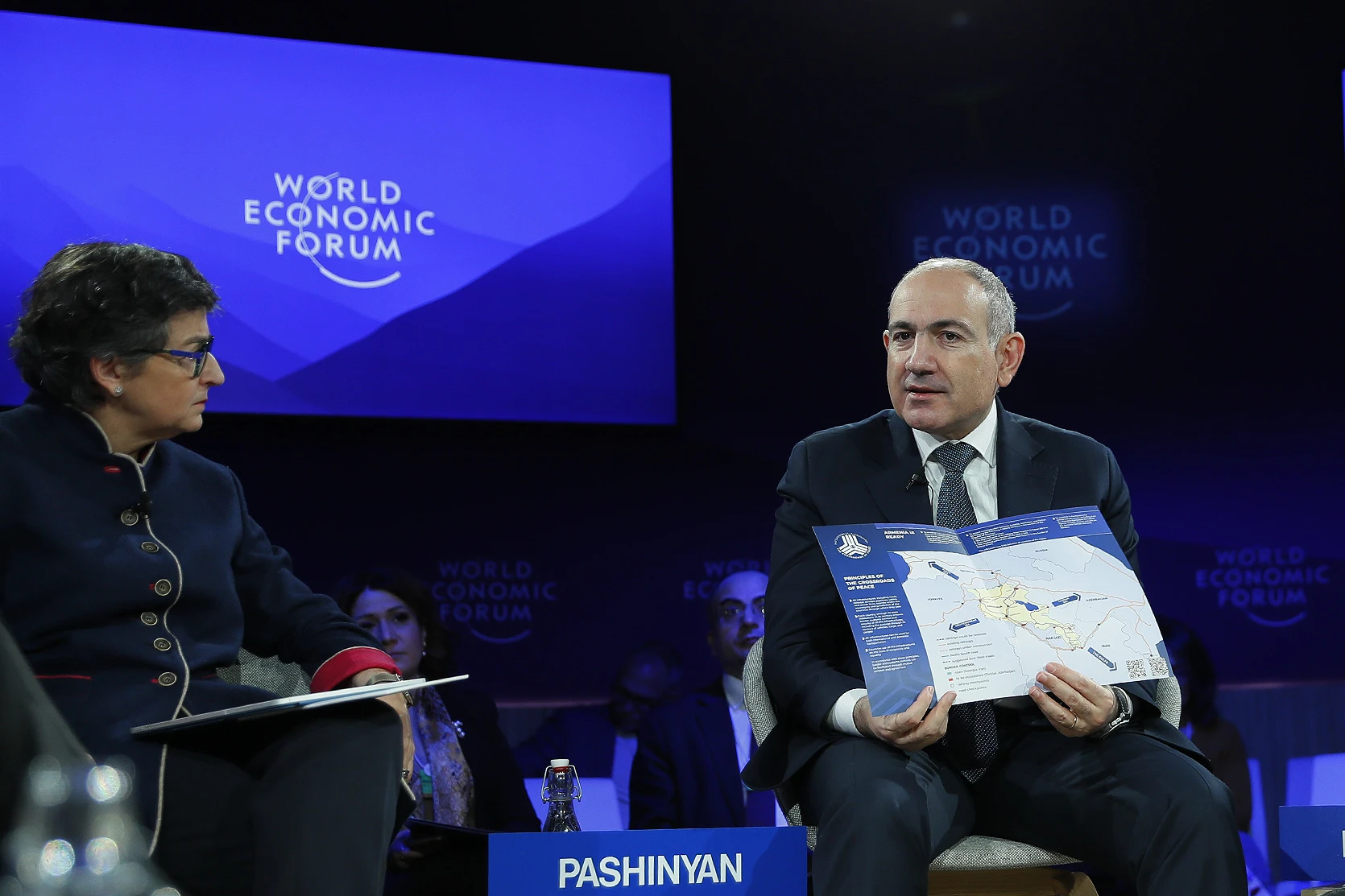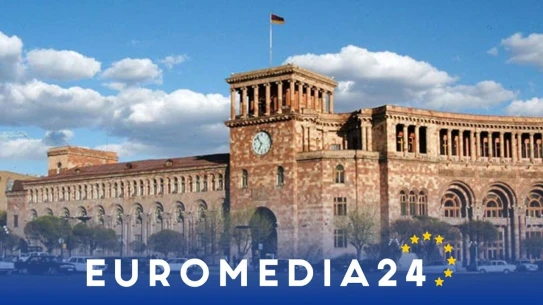Prime Minister Nikol Pashinyan participated in the panel discussion on "How to expand Europe's influence" within the framework of the Davos World Economic Forum.
Question - Now I would like to address my question to the Prime Minister of Armenia, Nikol Pashinyan. Of course, Europe is more than the European Union, it is made up of countries that want to become EU members, such as Armenia, but there are also countries that do not want to join the EU, such as Switzerland or Norway, but they also want to. have close ties with the EU. So, recently you put the EU accession bill on the table. Tell me, please, what is the significance of such a discussion for a country like Armenia?
Prime Minister Nikol Pashinyan - Thank you. In fact, the initiative belongs to civil society, and they presented a bill to start the EU membership process. Our government approved it and there is a high probability that our parliament will adopt that law, which will legally mean that we are starting the process of getting closer to the European Union.
Why do we want to be close to the European Union? Because we are a democracy, and when one is a democracy, he wants to be close to democracy or to be in that current. The opposite would be illogical. Now we cooperate very closely with the EU and to be honest, enormous changes and developments have taken place in our relations in recent years.
For example, we have started negotiations on visa liberalization, which has been on our agenda for many years, but we have not been able to even start negotiations. And I hope that we will manage to finish and sign it as soon as possible.
Now Armenia is included in the European Peace Fund, which is also very important. The European civil mission is now in our country, which is also very important. We are currently in the process of implementing the EU's Comprehensive and Enhanced Partnership Agreement. We cooperate very closely. As for economic ties, of course we want to be close to the EU in economic terms as well. But on the other hand, we want to be economically close to our regional countries as well.
Because, unfortunately, we have been in economic isolation since the very beginning of our independence, because our borders with Turkey and Azerbaijan were closed and remain closed. And in order to make a change in the supply chain, not only in our region, but globally, we are at the table. put our proposal called "Crossroads of Peace", which I hope you are familiar with.
This project is about making our regional transportation and communication channels more efficient, and also about creating new communication channels not only with Azerbaijan, but also with Turkey, deepening our relations with Georgia and Iran.
But it is also related to the European Union, because when this project is implemented, we will have a new chain route through Armenia to the European Union. This is not just an economic issue, it is also a very important security factor, because you just mentioned interdependence as a very important factor for universal stability and security. But of course, this project will be implemented when we can establish a stable peace with Azerbaijan, which unfortunately has not yet been achieved, we are working in that direction.
It is also very important that we can establish diplomatic relations with Turkey, and we are working in this direction as well. People often ask me whether I am an optimist or a pessimist in this matter.
I must say that I am neither an optimist nor a pessimist. I am pragmatic and I understand that we have to work until the problem is solved. The most important thing is not to deviate from the peace agenda, we have to focus on it as a goal and work without giving up, without getting frustrated. But for this, of course, we need the support of the international community, and I hope that this support will be there.
Question - Thank you Mr. Prime Minister. You reminded me of my former boss, the President of the European Commission, Jacques Deler, who said that you don't have to choose between being optimistic or pessimistic, you just have to be proactive. We are now in a geopolitical situation where every player wants the rest to stand down. next to him. And you are one of those countries to whom everyone will say: you know, it would be good if you were with me, and if you are not with me, then you are against me.
There is the USA, of course China, and there are also players in your region: Russia, the Gulf countries, Europe. How will you orient yourself here?
Prime Minister Nikol Pashinyan - This is the reason why we have decided to adopt a balanced and balancing foreign policy, which means that we will try to balance our relations with the European Union, with Russia, with regional powers. Our relations with Iran are very important.
I already said that we are trying to establish diplomatic relations with Turkey, we are trying to reach a peace agreement with Azerbaijan. Of course, it is not easy. But on the other hand, I don't think it is impossible. It may sound strange, but we are transparent in our intentions with all our international partners.
We share with all our partners what we are doing with our other partners. You talked about our decision to move closer to the European Union, but we are intensively trying to share our positions with Iran, with Russia, and with the rest of our partners, because Armenia is an independent state. and although we are in a time full of challenges, it also opens up a great opportunity for change. Obviously, periods of change bring with them great dangers, but also great opportunities.
And we try to manage the risks and seize the opportunities. I think this is the only pragmatic way to move forward, but not forgetting the balances, because a deviation from the balance can lead to very serious consequences for security and stability, not only for a specific country, but for the region and globally. for stability, because instability in any country, even a small one, can be a chain. That is why I think balancing and being balanced is the most important task.


